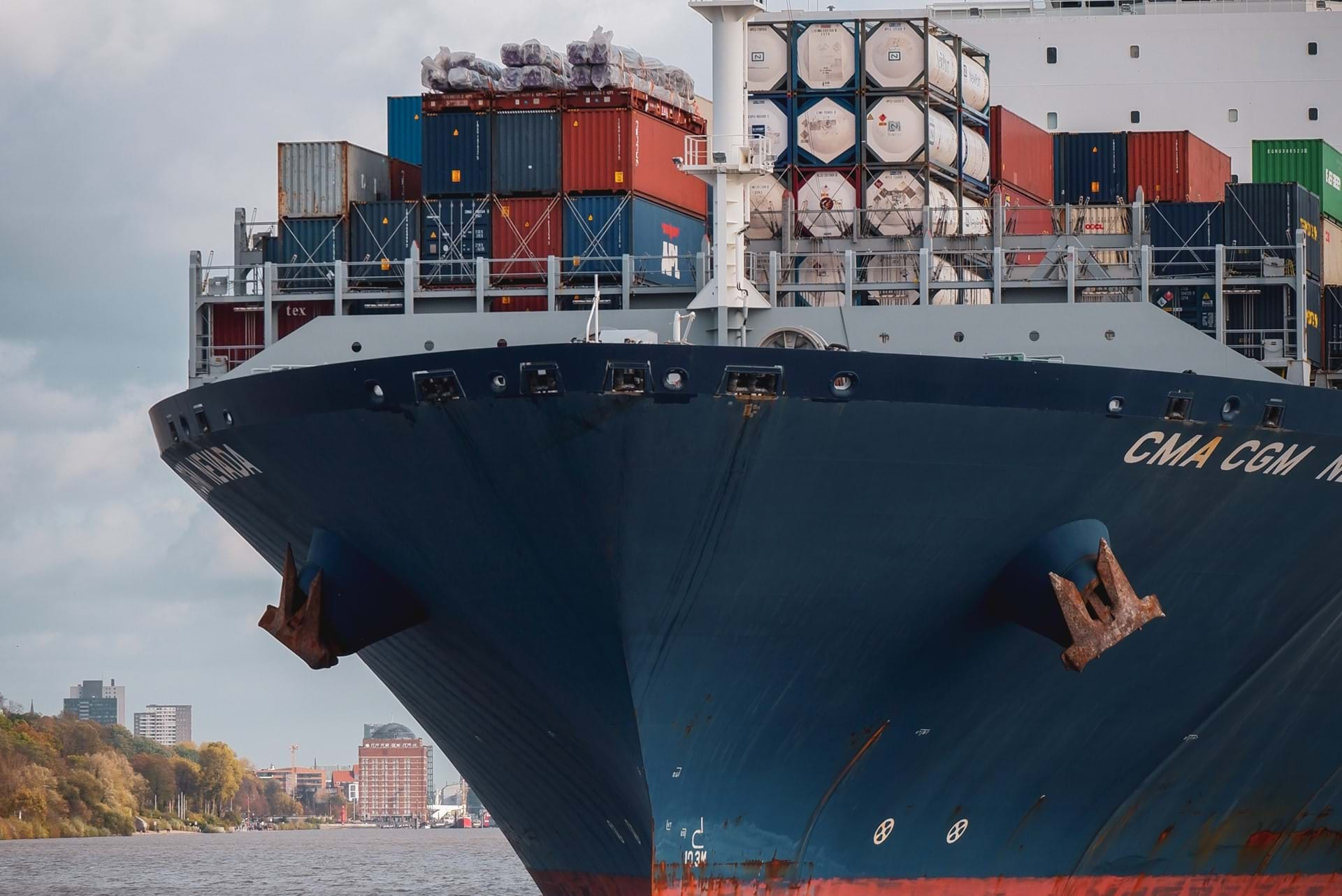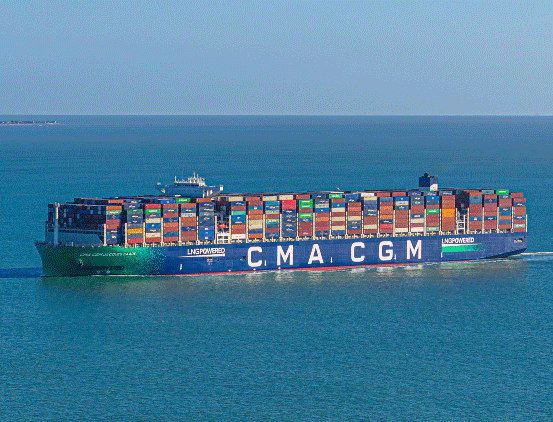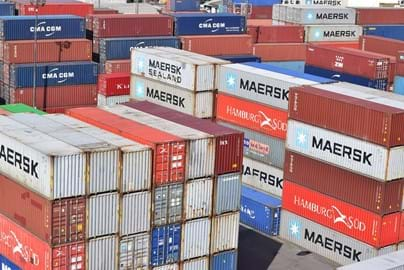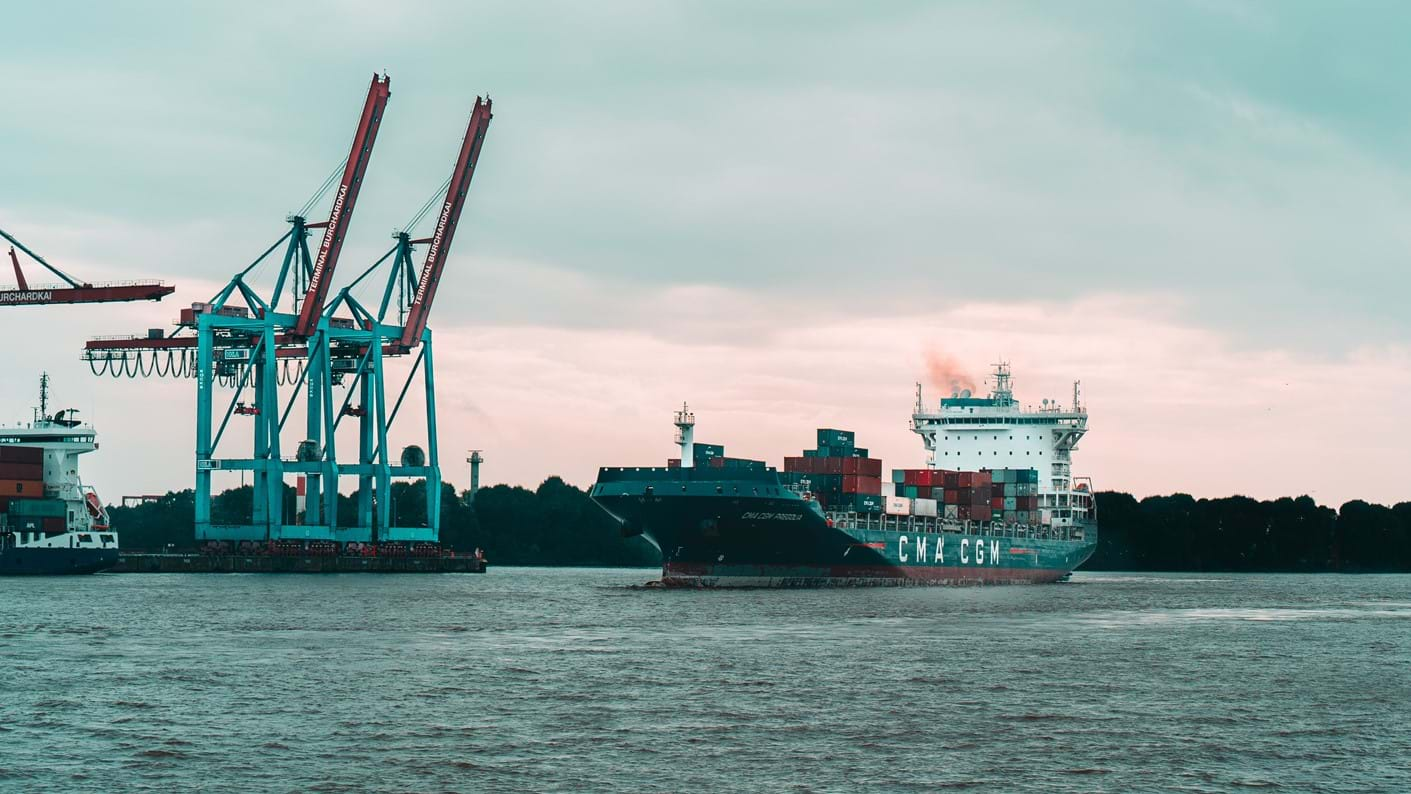
CMA CGM shows leadership for a decarbonized supply chain
European perspectiveThe CMA CGM Group, a global player in sea, land, air and logistics solutions, welcomed the opportunity to be the first major ship owner to obtain the Green Marine Europe certification after the program’s launched in 2020. CMA CGM has since committed to steadily improving all its results.
“It’s motivating to analyze exactly how we’re doing in terms of each of the program’s environmental performance indicators compared to other participants, and the precise steps we can take to further improve,” says Claire Martin, CMA CGM’s CSR vice president.
“Of course, CMA CGM had already been proactively working to reduce our company’s environmental footprint, especially in terms of carbon emissions reduction, but the eight performance indicators have broadened the scope of our efforts to pay more attention to additional issues, such as underwater noise, and waste management,” she says, adding by way of example that CMA CGM no longer carries any plastic waste aboard its ships as of June 2022.
CMA CGM takes its industry leadership role seriously in working alongside other shipping companies within Green Marine to improve the mode’s overall sustainability and make that progress known globally. “We already know that compared to all other modes of transport, shipping is the most sustainable option, but we all have to do even better,” Martin says.

Becoming the world’s third largest ship owner through strategic acquisitions and expansions in only 45 years, CMA CGM continues to follow in the entrepreneurial spirit of its founder, Jacques Saadé.
“The Group’s core business remains maritime transportation but Rodolphe Saadé, as chairman and CEO since 2018, has significantly expanded the company into multimodal logistics,” Martin says.
Saadé’s vision for logistical expansion began with the acquisition of CEVA Logistics in 2019, and then Micro’s Commerce & Lifecycle Services in 2021 to make CEVA the world’s fourth largest entity in contract logistics services as a CMA CGM subsidiary. The CMA CGM Group subsequently acquired GEFCO, a European leader in automotive logistics, a year later.
CMA CGM now has more than 155,000 staff members at 400 offices in more than 160 countries, serving 420 ports with a fleet of more than 620 vessels.
CMA CGM continues to reinvent shipping and will now help to do so in terms of the mode’s decarbonization
The actions that CMA CGM has taken so far to lower its carbon impact have resulted in the company reducing its CO2 emissions per kilometre and per container by 50% between 2008 and 2022. To achieve the net zero carbon goal by 2050, CMA CGM is working on several fronts.
CMA CGM has invested €12.86 billion (US$14 billion) in a fleet of more than 100 vessels that will be propelled by more sustainable fuels – some of which are already sailing.
In September 2022, it created PULSE, a new Energies Fund that it endowed with €1.5 billion (US$1.63 billion) to speed up initiatives supporting the industrial production of new fuels, low-emission mobility solutions across the company’s activities, as well as new energy efficiency approaches.
“Rodolphe Saadé established this investment fund to decarbonize all our activities,” Martin notes. “As of early November, we’ve invested €460,000 – more than US$500,000 – in 37 different innovative projects focused on decarbonization.”

The foremost effort is to develop alternative sources of cleaner vessel energy and make them readily available. “In the maritime industry, 60% of our carbon footprint is related to the energy we use in our vessels,” Martin notes.
“So, if we can find energy sources with zero carbon, we’ll achieve a large part of our goal, but that’s not our expertise, so we need to encourage and support the energy sector to accelerate its development, production and delivery infrastructure.”
Since July last year, CMA CGM has partnered with the French energy provider Engie to work together on a project called Salamandre to produce renewable, low-carbon gas for sea transportation. Salamandre will be the world’s first renewable gas production unit based on pyro-gasification and methanation technologies for sea transportation, according to Engie.

This past September, CMA CGM joined forces with A.P. Moller – Maersk to accelerate the transition to cleaner energy supplies for maritime transportation.
Both companies have placed orders for vessels that can be operated on bio/e-methanol, with CMA CGM also having LNG-propelled vessels that can use bio/e-methane instead.
“Our partnership with Maersk rides on us putting together our knowledge, experience, market needs and expertise to the challenge of decarbonizing the maritime industry,” Martin says.
As two of the biggest maritime transportation entities, we are working together because the decarbonization challenge is so enormous and must be met for the good of our industry, our customers and our planet’s future
Martin notes that CMA CGM is keenly aware that the challenge of achieving the Paris Agreement’s call for net zero by 2050 is further elevated by the fact that all transportation modes are hard to abate. “We’re convinced that we can’t do this on our own and must show cooperation and partnerships with energy suppliers, our competitors, technological innovators as well as our customers,” Martin says.
She commends the Green Marine Europe program for helping CMA CGM’s customers to understand the company’s sustainability efforts. “And they don’t just have to take our word for it but can see how we perform and continue to improve year over year within this clear and rigorous framework,” she adds.
The Green Marine Europe program also shows how the industry is collaborating to make progress together by establishing clear priorities and sharing best practices
Employees have become invested in the Green Marine Europe program with both pride and determination to do better. “They will often suggest ways that we can do something more sustainably to improve our results,” Martin says.
The company has committed to assisting its customers as much as possible through the decarbonization of the world’s major transport modes. “We’re ready to measure the carbon associated with all of their shipments and suggest ways to reduce it, which includes optimizing the types of transportation modes and routes that we use,” Martin explains.

Photo: Mika Baumeister, Unsplash
“That’s why we’re on target to achieve our goal of transporting at least 75% of the merchandise that we originally delivered by trucks by means of train or barge instead by 2025.”
Another major pillar of CMA CGM’s decarbonization focuses on the much greater use of electric equipment for cargo/container handling at terminals, but also for road transport. In early October, CMA CGM signed a non-binding letter of intent with Renault and Volvo to join a newly formed company with CMA CGM pledging a €120 million (US$130 million) investment towards the launch of a new line of electric vans by 2026.
We are determined to address every aspect of our business in terms of decarbonization right down to that last mile – or kilometre, if you prefer – in making the deliveries for all our customers
Realizing the expanding need for cleaner and renewable electricity, another segment of the funding is dedicated specifically to projects to find better ways to produce and scale up this energy sustainably. Every aspect of the business is undergoing scrutiny with the goal of net zero carbon. One example is the 2.1 million square metres (22.6 million square feet) of photovoltaic panels that will be installed on the CEVA Logistics warehouses by 2025 to make the warehouses operate on 100% renewable electricity.
Another pillar of the investment funding is supporting various start-ups and/or smaller enterprises focused on clean tech projects for the industry. “Again, we’re making sure that we address every aspect of our business,” Martin emphasizes.
“We’re also putting a lot of effort into protecting biodiversity, and particularly marine life,” Martin adds. “We’ve taken various actions to ensure that endangered species of any kind are not smuggled within our containers.”
CMA CGM has set up to train 100% of its staff on ethics and compliance matters to raise awareness regarding matters such as illicit trade, corruption risks and data protection. An ethics and compliance helpline is available to all staff and third parties.
For three consecutive years, CMA CGM has been awarded the EcoVadis Platinum medal in recognition of its commitment to protecting the environment – an honour given to only 1% of the 85,000 businesses assessed.
